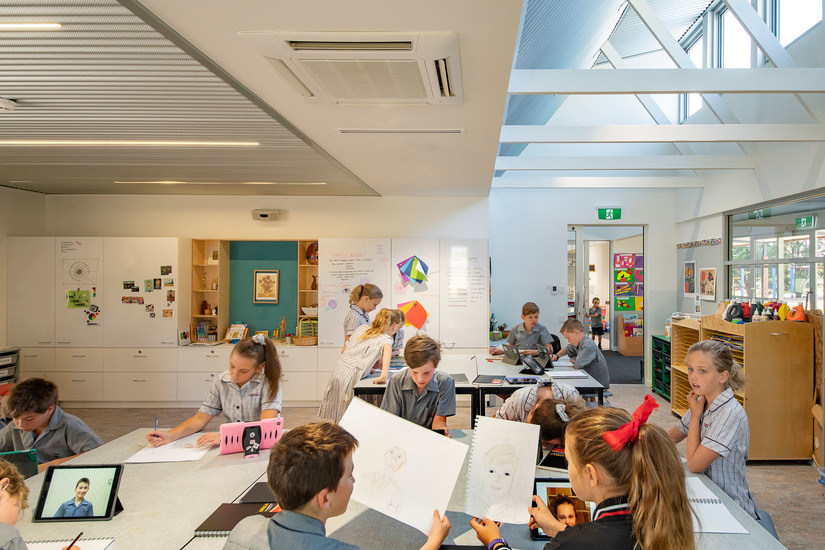24.05.2019
Why can’t we teach like we used to?
Many of us experienced school as a place where we all sat in rows at our own desk and learning comprised of trying to absorb all the wisdom and facts our teachers shared with us in order to obtain high scores and gain the best job we could after school. Education has changed dramatically in the past decade, and at a rapidly increasing rate. Two of the most eminent and well respected contemporary educational researchers explain this beautifully: Sir John Jones (knighted for services to education in the UK) and Sir Ken Robinson (author, researcher and international speaker on creative and cultural education in the UK, Europe, Asia and the United States and the most watched speaker in TED Talk’s history).
Sir John Jones explains how preparing our children for a world that doesn’t yet exist has its challenges and responsibilities for educators – one that we can’t ignore but must in fact embrace. He writes that, “We live in a rapidly changing world. A world in which statisticians claim, 80% of the jobs our children will do have not yet been invented. … We are all going to need five key capabilities; creativity, ingenuity, agility, adaptability and sociability. This has huge implications for schooling, in general, and teachers, in particular… Schools are going to need to develop learning environments which, while encouraging the relentless pursuit of excellence, also seek to promote a culture which questions the status quo and invites staff to take risks and embrace change.” While the measure of our industrial education was how much we knew for each subject, Sir John Jones makes no mention of knowledge as a goal, but rather what we can do with it – creatively, ingeniously, with agility, adaptability and socially.
Sir Ken Robinson defines the purpose of education as ‘enabling students to understand the world around them and the talents within them so that they can become fulfilled individuals and active, compassionate citizens.’ He focusses on the radical changes that are needed in education for our students to thrive. He notes, “There are forthcoming challenges in the 21st century – climate change, ethics around artificial intelligence, and more – and people need to be working closely in communities, using their full set of talents, in order to solve them… education instructors of today play a key role in shaping the future.” He highlights too the importance of letting students learn from their mistakes (as that is ultimately the point where new learning occurs), and the emphasis we should be taking when talking with and encouraging our students, “I have come to a realisation that effort and hard work should be praised more than being smart; that learning how to handle failure is a key life skill; that all of us possess that inner spark and finding your genius is more important than being a genius…”
As John Dewey, another eminent educational reformer famously said, “if we teach children today as we taught them yesterday, we will deprive them of their tomorrow.” As teachers, we continue to learn and grow.
https://sirjohnjones.com/preparing-our-children-for-a-world-that-does-not-exist
https://tophat.com/blog/sir-ken-robinson-keynote-engage
Mrs Ali Thacker
ASSISTANT HEAD JUNIOR SCHOOL: TEACHING AND LEARNING




